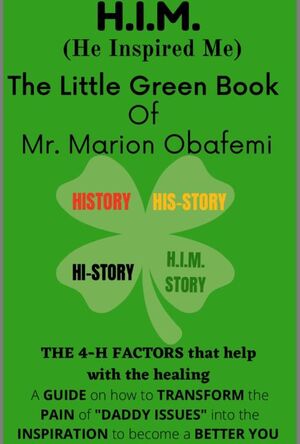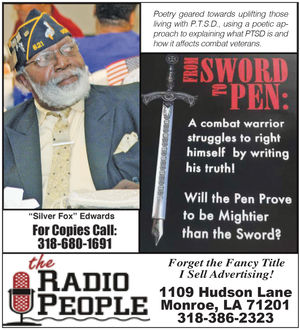JustUs Long Road
January 11, 2024
We are told that one of the institutions upon which this nation was built is that all men are created equal with certain inalienable rights, including life, liberty, and the pursuit of happiness. Among these rights is the right to be judged by our peers and to have a "speedy" trial. It took some time before some of us (Native Americans, Black people) could enjoy the benefits of justice enjoyed by those who were "privileged" in American society. Even now, there is still much work that needs to be done with our current judicial system, as it is anything but equal. Not only is the nation’s system of justice unequal, but so is its degree of representation in a courtroom. Unfortunately, that is something Lady Justice can’t remedy, but all defendants should be afforded the best representation, whether it’s the kind that Donald Trump is getting or that which is appointed by the system. In the case of Dveil Freeman, someone who knows firsthand what can happen if the individual representing you doesn’t do their best to represent you to the best of their ability. Freeman is in the "fight of his life" as he awaits the results of an appeal from a ruling that could grant him his freedom or face the reality of facing life in prison. Freeman is serving multiple life sentences for a second-degree murder charge and multiple drug conviction charges. Throughout the ordeal, Freeman has maintained his innocence, as trial transcripts appear to show how the state of Louisiana will use any/all measures to imprison a man/woman even when there is not overwhelming evidence or reliable witnesses that give conflicting testimonies to justify securing a conviction. Freeman has spent 13 years behind bars, but he is willing to share his story of how things can go horribly wrong in a courtroom. On May 13, 2010, Freeman was charged with an 8-count indictment by an Ouachita Parish grand jury on a second-degree murder charge in the death of David Green, along with seven drug charges stemming from a single drug transaction. All of the drug charges were handled by federal prosecutors, where a conviction was secured. According to court records, Freeman pled guilty to the drug charges on the condition/understanding that the Assistant U.S. Attorney would ask the Ouachita Parish District Attorney to dismiss state charges upon the federal guilty plea. But as history has shown in matters with people such as Freeman when making deals with the state, sentencing was considered 76 months in prison, with a refusal to dismiss the drug charges.

On March 12, 2014, Dveil Freeman was tried and convicted in Ouachita Parish on murder and drug charges. The verdict was non-unanimous on Count one, murder, and Count 8, the single drug charge that was related to "transaction involving proceeds from drug offenses".

The state would not be finished with Freeman. After Freeman had been sentenced on May 29, 2014, the state filed a multiple offender bill on his drug charges because of two previous offenses. Freeman would then face six life sentences for the drug charges and a life sentence on the second-degree murder charge. His sentences were upheld on direct appeal. On March 29, 2019, Freeman filed a timely application for post-conviction relief that (this is important) he was a victim of "ineffective assistance of trial counsel," in addition to other constitutional issues as they related to his trial. The ineffective assistance of trial counsel relief claim was raised because it is his current attorney’s contention that Freeman received what is called "deficient" counsel from the attorney who actually handled his trial. In an effort to support his claim for post-conviction relief, five evidentiary hearings were held, during which numerous witnesses to the Green murder case were called. Those hearings were held on July 2, 2021, October 10, 2021, May 20, 2022, June 29, 2022, and August 18, 2022. The state submitted a reply brief as the court took the matter under advisement for nearly a year.
On June 29, 2023, the trial court found that Dveil Freeman’s counsel "rendered ineffective counsel," granting him post-conviction relief because of a failure to investigate the murder charges by his attorney at the time. The court reduced it to a written judgment, signed on July 10, 2023. The court found that Freeman’s counsel knew in advance of a witness and failed to call that witness to testify. The court also said that counsel was aware of a cell phone expert whose testimony could invoke that Freeman's use of his cell phone could not place him at the scene of the murder. A key state witness who made multiple conflicting statements was not interviewed by his counsel. The court found that counsel failed to identify a single witness that he claimed to have interviewed or information in a file that he also claimed to have had but never produced it in court. The court found that counsel’s failure to investigate the murder charge "resulted in prejudice, as there were key witnesses that were not interviewed in this case that could have a bearing upon whether or not Mr. Freeman was present at the scene of the crime. The court vacated all of Freeman’s convictions, finding that it was impossible to isolate the impact of counsel’s ineffectiveness to just the murder conviction. At the present time, the state seeks to reverse this ruling.

Though there was no physical evidence or video surveillance tying Freeman to David Green’s death, the state’s entire case was built upon circumstantial evidence of trial testimony of several witnesses. According to court records, two witnesses claimed that they saw Freeman at the scene, contradicting each other, even though they said they saw the same thing. Their testimonies were further contradicted by other witnesses who claimed that a person who was said to be Freeman was not him. One of the state’s key witnesses, according to court records, gave multiple different statements before trial, one of which claimed not to have seen Freeman at the scene. Other factors cited in Freeman’s defense at the hearings was not calling in the cell phone expert, who could have established Freeman in a different location at the time of the murder. Another factor was the claim that Green was killed shortly after 10:00 PM. Still, the cell phone expert’s testimony at one of the evidentiary hearings indicated that it was unlikely that Freeman could be at the murder scene when a cell phone tower showed that at the time Freeman was on his phone, it indicated that he was miles away from the scene. Several state witnesses said that the suspect in question was around the scene "30 minutes" after the shooting, while others said that Freeman was not at the scene. Court records also showed that there was a "difference" in physical appearance and clothing between Freeman and the shooter, as the shooter was said to have been dressed in black. One other factor brought out in court was that Freeman was seen in a nightclub at 11:00 PM in Delhi, LA, which is 30 miles away from the murder. Freeman’s counsel never interviewed a potential witness who said that he saw Freeman at the club, nor was he called to testify. That witness could have added exculpatory evidence had he been interviewed prior to the trial. In its ruling, the court said that the counsel’s failure to investigate and interview such an important witness fell below the standard for a REASONABLE defense attorney and resulted in prejudice. But for now, Freeman can only wait, hope, and pray as he awaits the outcome of another ruling that will help him become a free man. He has spent 13 years of his life behind bars. His hope is that his current attorney will be able to do what his last attorney should have done: to give him the best legal representation to which we all should be entitled.


Reader Comments(0)